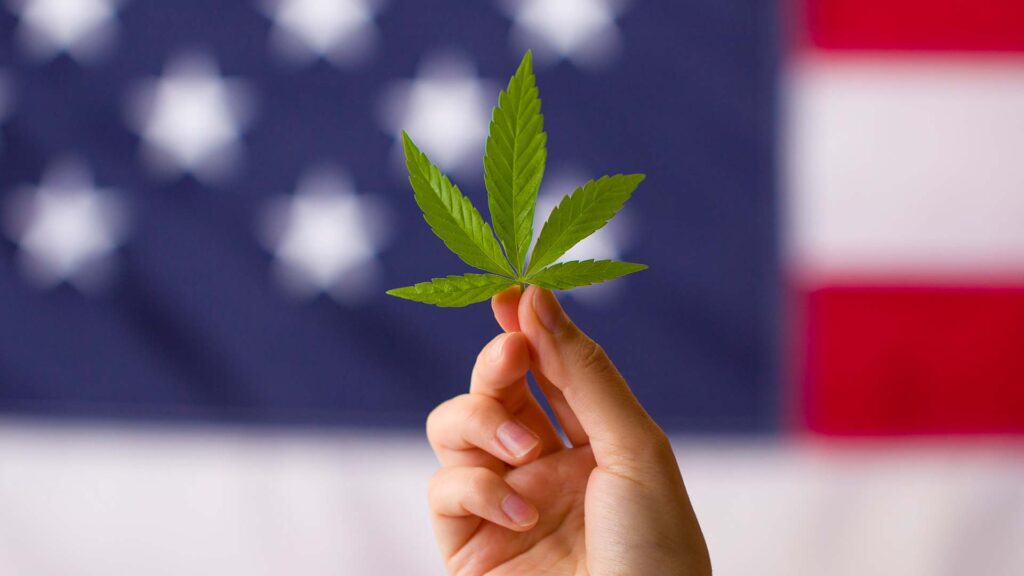We’ve compiled a list of Missouri initiatives and arranged them into categories for our patients to compare. Take a look to see how these proposed initiatives could impact your future medical cannabis purchases.
- The Difference Between Legislation and Initiatives
- Comparing the Two Initiatives
- Discussing the Proposed Legislation

What are Legislation and Government Initiatives
Laws begin as ideas – the difference between legislation and initiatives is as simple as WHO had the idea.
Legislation
First, a representative sponsors the bill. The bill is then assigned to a committee for study. If released by the committee, the bill is scheduled for a vote, debate, or amendment. If it passes by a simple majority, it then moves to the Senate. The process is then repeated at this level and if it passes by a simple majority, a third committee reviews and works out any changes that have been made along the way. The resulting bill returns to the House and Senate for final approval.
Initiatives
On the other hand, initiatives are proposals drafted by citizens to create, amend, or repeal a state law or constitutional provision through collecting petition signatures from a certain minimum number of registered voters (in this case: 107,246). Successful initiative petition efforts result in the proposal being presented to voters on the November ballot.
Is Marijuana Legal in Missouri?
At the moment in 2022, only medical marijuana is legal in Missouri. There are currently two initiatives and a piece of legislation currently on the table that seek to define what a recreational cannabis market in Missouri could potentially look like. These submissions aren’t final and could change in the coming months – but the team here at Bloom is keeping an eye on any potential updates.
Comparing the Two Initiatives
Possession: How Much Cannabis can you Possess in Missouri?
• Fair Access Missouri
No more than (8) ounces of dried, unprocessed cannabis flower may be possessed by adults 21+ at any time. Up to (28) grams of resin/extract or (4,000) milligrams of cannabis-infused products may be possessed by adults 21+ at any time.
• Legal Missouri 2022
Individuals will be allowed to purchase up to (3) ounces of cannabis flower, or its equivalents, at a time.
Personal Cultivation: Can you Grow Marijuana in Missouri?
• Fair Access Missouri
A consumer may cultivate up to a 25 sq ft of flowering canopy in any space owned/leased by the consumer. The space must be secured against entry. Such cannabis cannot be sold to any other individual, but can be donated to the new Compassionate Care Program.
• Legal Missouri 2022
“Any person aged 21+ may obtain a registration card from the department to cultivate up to (6) mature flowering marijuana plants, (6) nonflowering marijuana plants (over 14 inches tall) and (6) clones (plants under 14 inches tall) for non-commercial use, provided:
- Any marijuana produced by the plants in excess of (3) ounces are kept at one private residence, are in a locked space, and are not visible by normal, unaided vision from a public place and
- Not more than (12) flowering marijuana plants are kept in or on the grounds of a private residence at one time
Registration card is valid for (12) months from its date of issuance and shall be renewable. The department shall charge an annual fee of $100, with such rate to be increased/decreased each year by the percentage of increase/decrease from the end of the previous calendar year of the Consumer Price Index”
Adult-Use Cannabis Tax
• Fair Access Missouri
A 7.5% tax will be levied by the state of MO on retail sales of adult-use cannabis. No wholesale tax will be collected on cultivation/manufacturing of cannabis products.
• Legal Missouri 2022
A 6% sales tax would be levied.
Missouri Medical Marijuana Program
• Fair Access Missouri
“A Medical Marijuana Home Cultivation Patient may increase their plant canopy to a total of 50 sq ft with no limit of flowering plants. The cultivation fee for a patient drops to $25/year
The possession limit for a medical marijuana cultivation patient has increased to a one-year supply. Harvested marijuana must be stored in a secured, locked area. Purposefully possessing twice the legal limit can result in up to a $2000 fine, but the penalty of a one year incarceration is removed.
Multiple licensed caregivers & licensed patients may cultivate in a secured and locked shared space of up to 5,000 sq ft with no plant limit.
Patients with multiple caregivers cannot possess more than the department limit of (4) ounces. Only a primary caregiver for a minor can administer medical marijuana
The Department of Health & Senior Services is limited to retaining only 20% of net revenues for operation. Department revenues will no longer be reduced or diverted away from the Missouri Veterans’ Health & Care Fund for legal issues. “
• Legal Missouri 2022
Extends the amount of time that medical marijauna patient and caregiver ID cards are valid from one to three years while keeping the cost low ($25). And the current $100 fee for Missourians who choose to grow medical marijuana at home will be reduced by half, with the expiration period also extended from one to three years.

Cannabis Freedom Act Legislation
In addition to both initiatives, Representative Ron Hicks (R) filed legislation, titled the “Cannabis Freedom Act”. In a memo to colleagues, he mentioned that this measure was drafted in a way that incorporates elements from “every marijuana bill filed this session” to create a “free but tightly regulated market for legal marijuana”.
This legislation is still in its early stages and the details have yet to be hammered out in committee, what we know so far is this:
The bill would allow adults 21 and older to purchase and possess cannabis from licensed retailers, although a purchasing limit has yet to be defined. Adults would be able to cultivate up to 12 plants for personal use. As for expungement, it would allow anyone with non-violent marijuana convictions to petition the courts for record clearing. Those currently incarcerated would also be eligible for resentencing, and those on probation or parole would be allowed to use marijuana. Police would no longer be allowed to use the odor of marijuana alone to conduct a warrantless search of a person’s private property under the legislation and cannabis could not be used “as a factor in family court proceedings.”

